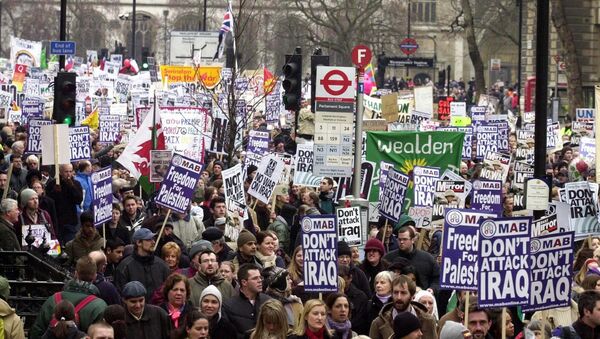March 20 2018 marks the 15th anniversary of the launch of Operation Iraqi Freedom, the US-led invasion of Iraq. Despite the UK playing a leading and pivotal role in the conflict, with around 45,000 troops (roughly 19 percent of the invasion force) remaining in the country until 2009, the mainstream British media has been largest silent about the momentous commemoration.
The anniversary is unlikely to go unremarked upon in Iraq itself — although the friends and families of those slain in the 15 years since the initial invasion are unlikely to be celebrating.
Who's Counting
Calculating the true number of deaths produced by the Iraq War is an inexact science — General Tommy Franks, who led the invasion, told reporters in 2003 the US military "don't do body counts." Given official refusal to keep an ongoing tally, the task has fallen to medical professionals with experience of conducting comprehensive mortality studies in major warzones.
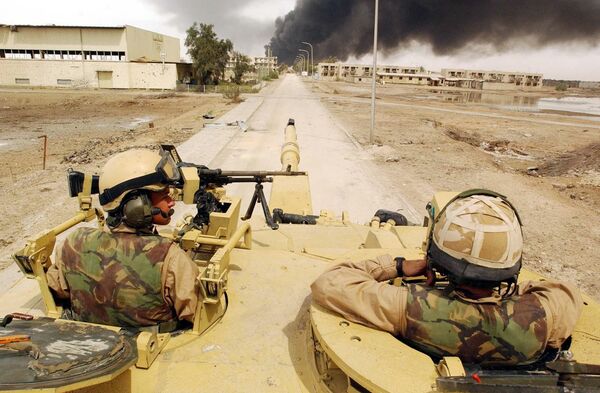
US and UK officials publicly condemned the report, criticising its methodology and suggesting its calculations were wildly exaggerated. However, behind closed doors the UK government acknowledged the report was "likely to be right". A 2015 Physicians for Social Responsibility report — Casualty Figures After 10 Years of the ‘War on Terror — also found The Lancet paper more reliable than other mortality studies conducted in Iraq.
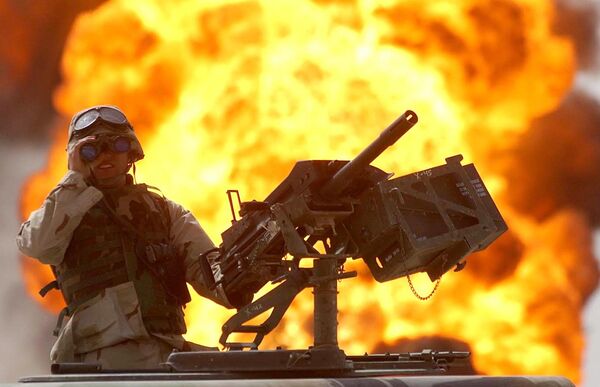
Complicating the picture are arguments over whether casualties produced by the US-led coalition in their battle against Daesh since 2014 should be included in the total — and the fact such killings continue to the present day. The campaign has seen 105,000 bombs and missiles dropped on Iraq in under four years.
Several cities held or once held by the group have been reduced to rubble, and Iraqi-Kurdish intelligence has estimated at least 40,000 civilians died in the assault on Mosul alone. In recent months, an attempt to clean up the rubble in the ancient city found 3,353 more bodies, of whom only 20 percent were identified as ISIS fighters — the rest were civilians.
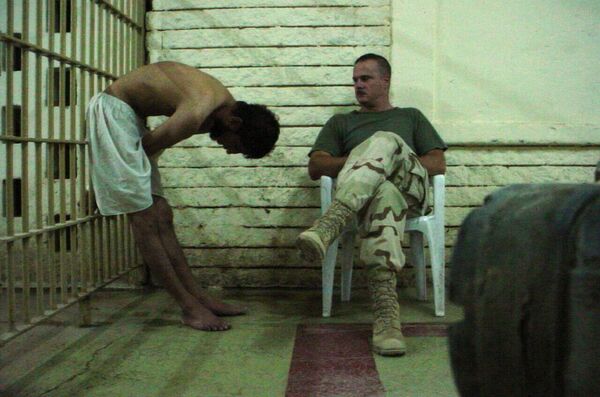
"An entire generation of Iraqi children has known little other than life in a country riven by violence, fear, hopelessness, internal displacement and poverty, [and] is growing up deprived of basic security or well grounded hope, a generation of the orphaned and dispossessed. Let us in the West have the courage to face this truth and accept the role we played in it, so that we may at last make meaningful efforts to help solve rather than compound these problems," the NGO wrote.
Moreover, the organization bemoaned how Western publics had seemingly become "ever more inured and desensitized to Iraqi suffering."
"[This is] in part thanks to the creeping ‘normality' of the relentless daily death toll. ‘Everyday' violence makes poor news copy, especially when it's happening far away and to no one we know. We in the West have a responsibility to become more fully aware of the experienced realities of a nation and a people whose fates we have so significantly altered. After 15 years of never-ending bloodshed, is it not now finally time for our governments to join and support the efforts of Iraqi civil society and NGOs to accurately and comprehensively document the full extent of the harms suffered by the people of Iraq?" Iraq Body Count concluded.
Legal Arguments
Ever since March 20 2003, the legality of the war has been hotly debated. While attempts to prosecute officials responsible for planning and executing the war have been unsuccessful, there is significant consensus that the war constituted a "crime of aggression".
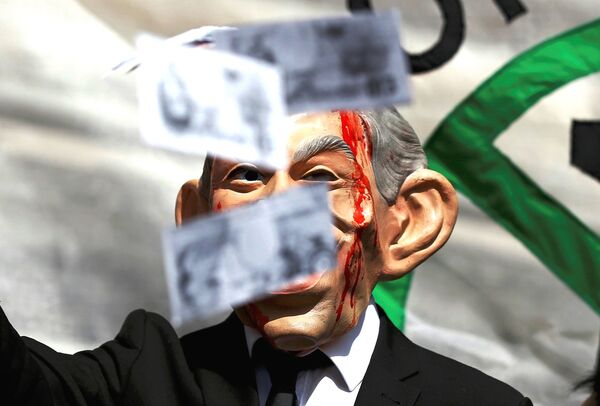
Sir Michael Wood, senior legal adviser at the Foreign Office in 2003, advised the government intervention without UN approval was "contrary to international law". His deputy, Elizabeth Wilmshurst, resigned in protest on the eve of the invasion. She subsequently told the Iraq Inquiry, a public investigation of the war conducted 2009 — 2011 that finally published its findings in July 2016, all Foreign Office lawyers "dealing with the matter were entirely of one view".
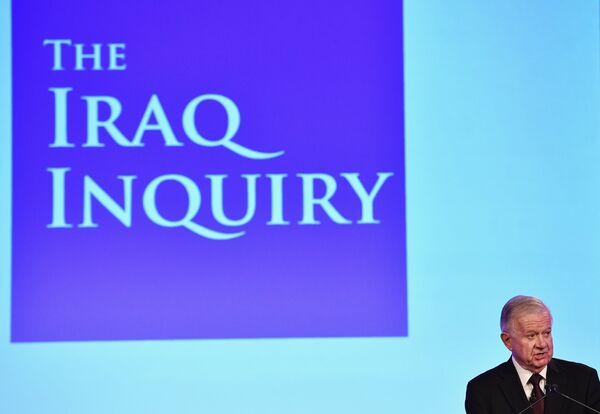
Limited Liability
Despite this, at the official level in Britain, one could be forgiven for thinking the conflict never happened. No government minister of the day has faced any repercussions for their role in the war.
Only one — Leader of the House Robin Cook — resigned in immediate protest of the war, and all others backed it. Clare Short, International Development Secretary — who called Blair "reckless" in the lead up to the war — resigned in May. Since then, she has become chair of the Extractive Industries Transparency Initiative.
Despite his subsequent repudiation of the war's legality, John Prescott remained Deputy Prime Minister until Blair's resignation in 2007, whereupon he joined the House of Lords. There, as Baron Prescott, he sits by other cabinet contemporaries who also backed the war, including David Blunkett, Paul Boateng, Alastair Darling, Tessa Jowell and John Reid.
Many ministers were also subsequently promoted — Margaret Beckett became Foreign Secretary, Darling Chancellor, Reid Defense Secretary and Straw Justice Secretary.
Tony Blair resigned as Prime Minister in 2007, going on to become Official Special Envoy of the Quartet on the Middle East until 2015. Chancellor Gordon Brown became UN Special Envoy on Global Education.
It's not merely ministers who saw their fortunes rise in the wake of the invasion. Matthew Rycroft, Blair's private secretary, who drafted the infamous "Downing Street memo", went on to serve as UK ambassador to the UN, and in 2018 was promoted to Permanent Secretary at the Department for International Development.
Look. BP is now doing fine from #Iraq oil. And one of BP’s Board members is ‘Sir’ John Sawers, former head of MI6, who in 2003 Iraq invasion/occupation was the UK's special rep in Iraq. It’s just amazing what is allowed to happen. pic.twitter.com/eQQcc13Kgg
— Mark Curtis (@markcurtis30) January 8, 2018
Sir John Sawers, former head of MI6 UK special representative in Iraq following the invasion, joined BP as a non-executive director in May 2015.

